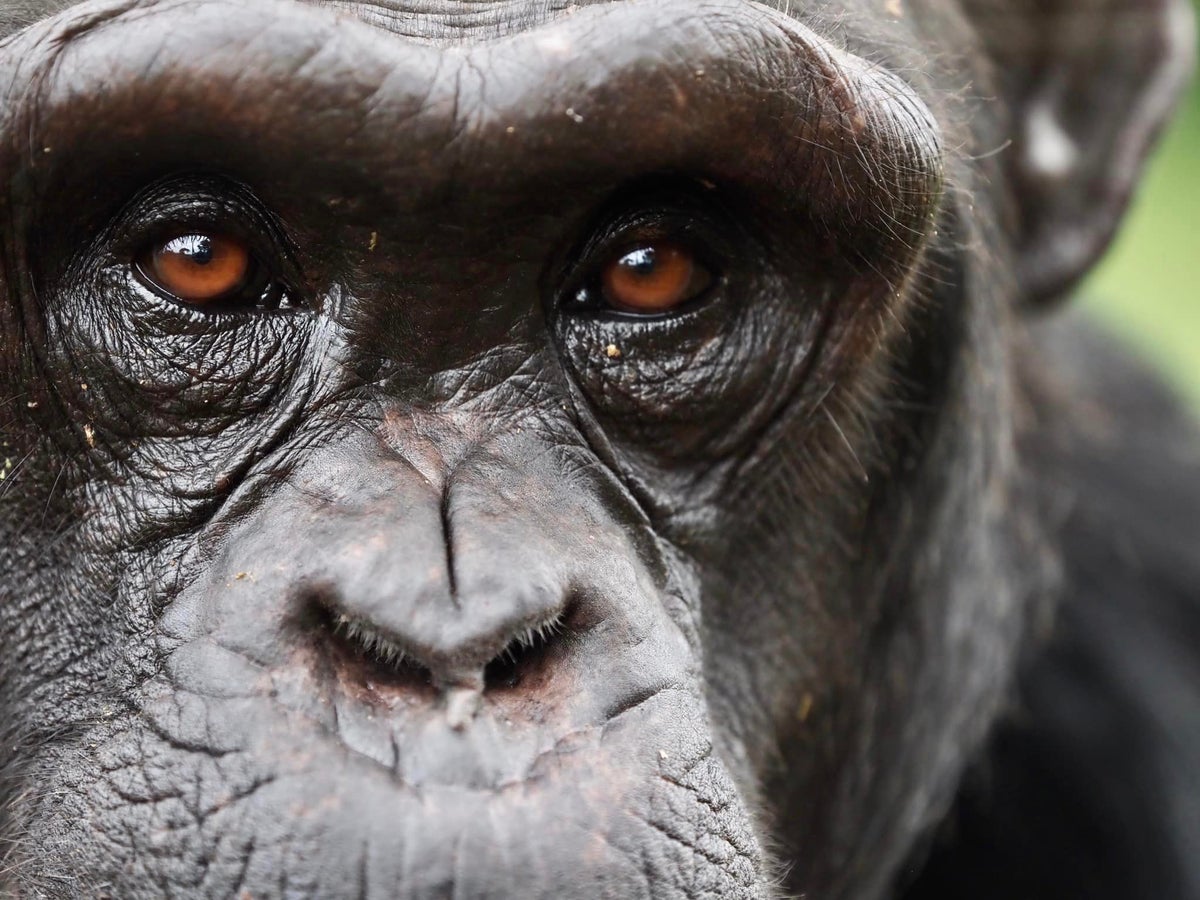A recent groundbreaking study has revealed that chimpanzees possess a remarkable ability to weigh evidence and revise their beliefs in ways that closely mirror human rational thinking. Traditionally, the capacity for belief revision—reflecting on one’s own thought processes and updating beliefs based on new information—has been regarded as a uniquely human trait. However, researchers have now demonstrated that our closest evolutionary relatives share this sophisticated cognitive skill, challenging long-held assumptions about the exclusivity of human rationality.
The study, published in the journal Science, involved a series of carefully designed experiments conducted at the Ngamba Island Chimpanzee Sanctuary in Uganda. Researchers presented chimpanzees with tasks that required them to choose among several boxes, each potentially containing hidden food. Initially, the chimpanzees received a clue indicating which box was likely to contain the reward, and they made their choice accordingly. Subsequently, the animals were given new information that sometimes contradicted the initial clue. The critical test was whether the chimps would revise their decisions in light of this conflicting evidence.
Remarkably, the chimpanzees consistently updated their choices in a manner predicted by rational-choice models. They changed their minds only when the new evidence was more compelling than the original clue, demonstrating a nuanced evaluation of conflicting information rather than a simple reaction to the most recent stimulus. “The chimps knocked it out of the park,” said Brian Hare, an evolutionary anthropologist at Duke University who was not involved in the research. “It’s obvious this is so easy for them.”
One of the most striking aspects of the experiments involved the chimpanzees’ responses to evidence that directly contradicted their earlier assumptions. For instance, if a chimp heard a rattling sound inside the first box, it would initially infer the presence of an apple, a plausible food item. However, when the experimenter revealed a stone instead, the chimps quickly disregarded the initial box and redirected their attention to an alternative box that previously seemed less promising. This capacity to detect and correct mistaken beliefs, based on undermining evidence, underscores a level of cognitive complexity that had previously been thought to be beyond nonhuman animals. Jan Engelmann, a comparative psychologist at the University of California, Berkeley and co-author of the study, described this ability as “the cherry on top,” highlighting its unexpected sophistication.
The findings challenge the notion that only humans engage in reflective metacognition—thinking about their own thinking. While many animals exhibit what researchers call “unreflective responsiveness to evidence,” such as an amoeba moving toward food signals, this form of behavior lacks the self-awareness and evaluative depth characteristic of human reasoning. Engelmann argues that the chimpanzees’ behavior cannot be easily explained without attributing some level of reflective assessment regarding the certainty of their knowledge. This suggests that chimpanzees possess a more advanced form of rationality, one that involves scrutinizing evidence and adjusting beliefs accordingly.
Christopher Krupenye, an animal cognition expert at Johns Hopkins University who was not involved in the study, concurs with this assessment. However, he cautions against assuming that chimpanzees think in the same propositional terms as humans, given their lack of language. Instead, he proposes that chimps may primarily think in mental images or other nonverbal representations. Regardless of the format, Krupenye emphasizes that the chimps’ ability to integrate complex information and revise their beliefs indicates a departure from simple emotional or instinctual reactions toward a more sophisticated cognitive awareness.
Despite these impressive capabilities, the study’s authors acknowledge that human rationality remains distinctive, particularly due to our unique capacity for social interaction and communication. Hanna Schleihauf, a comparative psychologist at Utrecht University and co-author of the study, points out that humans refine their beliefs through dialogue, giving and asking for reasons in ways that deepen understanding and enhance reasoning skills. This social dimension of cognition likely played a critical role in the evolution of our advanced reasoning abilities, enabling us to argue, persuade, and build shared knowledge.
This research not only narrows the cognitive gap between humans and chimpanzees but also offers important insights into the evolutionary origins of human reasoning. More than 150 years ago, Charles Darwin predicted that our mental faculties would turn out to be extensions of capacities found in other animals. The demonstration that chimpanzees engage in belief revision and reflection supports this view, revealing that the roots of human rationality lie in cognitive abilities inherited from a common ancestor shared with chimpanzees and bonobos.
Brian Hare sums up the significance of

